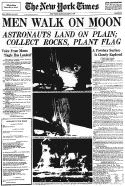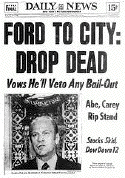
|
||||||||||||||||||||||||||||||||||||||||||||||
|
Anyway, I remember what it was like to smoke pot, and I definitely remember what it was like after smoking pot. It gives you the munchies, an appetite for anything that's rich and sweet. I think sometimes American industry worked at creating products just for people with munchies, like Krispy Kreme donuts. Kellogg's makes many such products. Now Kellogg's has dropped Michael Phelps as a spokesmodel because, shudder, he got caught smoking pot. Geez Louise, that's like getting caught having a beer. Yeah it's illegal, so is torture, what are you going to do? Fact is, after winning all those gold medals in Beijing and bringing glory to our country, he's entitled to kick back, smoke some dope, eat some poptarts and rice krispies, and hang out for a bit while he basks in the glow of our admiration. He should get laid too. A lot. (But use protection, you don't want to get a STD.) What's the point of being young and successful if you can't enjoy it! What a bunch of stinkers they are at Kellogg's. They could score so many points by saying something like this: "We don't encourage pot smoking, but we understand that some people do it. We have so many bigger problems to tackle in this country, and Michael Phelps is such an incredible young man and hero, we decided to be heroic ourselves, and cut him some slack, and keep him on the corn flakes box." So I don't think we should boycott Kellogg's, let's buy them. And put up ads on our websites explaining why we're buying them. Because we want them to do the right thing, and get the big fat stick out of their butt, and lighten up a bit. Maybe even step out back of the office in Battle Creek and smoke a doobie. I've been quietly working with a small number of users on the next interation on the OPML Editor's instantOutline tool. I wrote about it in January, after Hutch Carpenter discovered its previous incarnations. I was getting a new version ready for a project I was working on in December, so it was pretty easy for me to get it ready for wider use, which I have now done. The new tool has several prerequesites: 1. You must have the OPML Editor installed on your desktop computer, it's available either for Windows or the Macintosh. 2. You must be a member of FriendFeed and 3. You must be a member of the instant-outline-beta group on FriendFeed. I've built most of the back-end on the excellent realtime updating API in FriendFeed, that's why you have to be a member to use the I/O tool. Documentation is here: instantOutline.html. I'm monitoring the workgroup. Hopefully this is a next step in something fun and excellent. Look forward to seeing you there. One more time -- open the news industry! As I said in a podcast a few days ago, since the beginning of my career in the early 80s, I've been meeting with people in the news industry to try to play a role in its transition to an electronic medium. But that's only half of it, the easy half. The hard half: I want to be a reporter, but a new kind of reporter. Instead of one of the few, I want to be one of the millions. And I want technology to find a way to do what reporters of the 20th century used to do, to organize all the information from what they used to call "sources" into reports that people like you and me can read and think about and discuss.
The news people talk about paying for news, but the suppliers of news, the sources, are never paid. So if we can find a way to do what reporters do, without paying reporters, then voila, we can have our news for free. Before you rattle off some tired rationale, think about it. What are reporters doing that amateurs and/or software can't do? Jay Rosen explained this to me once -- the word for what reporters do that machines don't is "authority." Humans convey authority. But -- only until humans teach us how to do it for them. Here's the idea I would program into the heads of people who run the news corporations if I could turn them upside down and hang them by the feet until all the old wrong ideas ran out of their heads, forming a fetid puddle on the ground beneath them. News people are all around you, anxious to get in there and work, for free, on the news. At first thousands of them, and then once the glitches are worked out, tens of thousands. There's no shortage of people who want to inform others. The challenge is to figure out which ones want to do it for love. And that might not be such a challenge. I can show you a few dozen, and I bet they could show you a few more and so on. In the end you might not be able to make money at news, but you're not making money now, so what else is new?
The key is to look at all those empty newsrooms, and to envision, before they completely shut down, filling them with volunteers -- who we can teach to write the news. One more thought -- as with all post-apolcalyptic thinking, post-Katrina New Orleans provided the testbed, the dry run. Look at what the Times-Picayune did in the days after the hurricane. In my humble opinion a great newspaper rose overnight where a mediocre one had been the day before. The printing presses weren't running, and the normal management structure was heavily disrupted. But they had a story, a great one -- and if you go back to the roots of news, that's when it really happens, not when someone pays you well, but when you have a great story. (Same thing happens in software, when you're shipping a winner, somehow everyone on the team knows, and they put it in an even better performance.) That's what we all want to be part of -- something great. I think that expresses the best of the human spirit. As young people we want to be the greatness, but as we grow we want to be part of greatness. That's much more exciting. Update: Here's an example of the kind of reporting I find riveting, Pulitzer-worthy, written by an amateur, with passion. |
"The protoblogger." - NY Times.
"The father of modern-day content distribution." - PC World.
One of BusinessWeek's 25 Most Influential People on the Web. "Helped popularize blogging, podcasting and RSS." - Time.
"The father of blogging and RSS." - BBC.
"RSS was born in 1997 out of the confluence of Dave Winer's 'Really Simple Syndication' technology, used to push out blog updates, and Netscape's 'Rich Site Summary', which allowed users to create custom Netscape home pages with regularly updated data flows." - Tim O'Reilly.
My most recent trivia on Twitter. On This Day In: 2008 2007 2006 2005 2004 2003 2002 2001 2000 1999 1998. |
|||||||||||||||||||||||||||||||||||||||||||||
|
© Copyright 1997-2009 Dave Winer. Previous / Next |
||||||||||||||||||||||||||||||||||||||||||||||
 First, a disclaimer -- I used to smoke pot, but I haven't in many years. I don't smoke anything, or actually take any drugs that get me high. However, I strongly believe that marijuana should be decriminalized, even made legal. I think it's the ultimate in hypocrisy to argue that former members of the excecutive branch of the US govt should not be prosecuted for war crimes because it would be looking backward, while our jails are full of people whose only "crime" is that they smoke pot. It's like we have two legal systems, one for the powerful and one for the rest of us. It's so un-American, I don't know why people can't see that.
First, a disclaimer -- I used to smoke pot, but I haven't in many years. I don't smoke anything, or actually take any drugs that get me high. However, I strongly believe that marijuana should be decriminalized, even made legal. I think it's the ultimate in hypocrisy to argue that former members of the excecutive branch of the US govt should not be prosecuted for war crimes because it would be looking backward, while our jails are full of people whose only "crime" is that they smoke pot. It's like we have two legal systems, one for the powerful and one for the rest of us. It's so un-American, I don't know why people can't see that.
 The manufacturing process for news has radically shifted. The question is, as with the economy, whether we can transition the existing process to become the new one (imho preferable) or does the old system have to collapse before the new one can rise to take its place.
The manufacturing process for news has radically shifted. The question is, as with the economy, whether we can transition the existing process to become the new one (imho preferable) or does the old system have to collapse before the new one can rise to take its place. 

